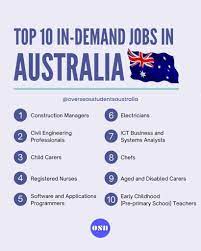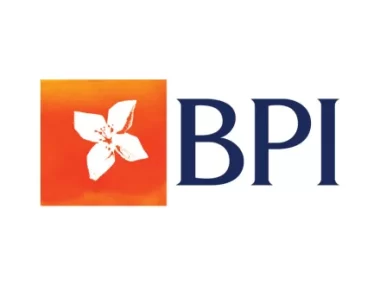10 things you must know on How to immigrate to the UK
Welcome to our comprehensive guide on immigrating to the United Kingdom. If you’re considering starting a new chapter of your life in the UK, understanding the immigration process and guidelines is crucial. Throughout this article, we aim to equip you with essential information to ensure a smooth and successful journey.
Key Takeaways:
- Familiarize yourself with the steps and guidelines for immigrating to the UK.
- Explore the various immigration categories and visa types available.
- Learn about the financial and language requirements for UK immigration.
- Discover strategies for finding employment opportunities and securing sponsorship in the UK.
- Gain insights into the UK immigration application process.
- Understanding UK Immigration Categories and Visas:
When it comes to immigrating to the United Kingdom, comprehending the different immigration categories and visa types is paramount. Whether your intention is to work, study, or reunite with family, each category entails specific requirements and eligibility criteria. By acquainting yourself with these categories and visas, you can identify the most suitable option to fulfill your immigration goals.
Here are key UK immigration categories and visa types:
- Work Visas: Options include the Skilled Worker Visa, Intra-Company Transfer Visa, and Global Talent Visa, each with distinct criteria based on job skill level, salary requirements, and sponsorship from UK employers.
- Student Visas: If pursuing education in the UK, the Student Visa allows study at recognized institutions and potential part-time work during studies.
- Family Visas: UK citizens or residents can sponsor family members through visas for spouses, children, parents, and other dependents.
- Investor and Entrepreneur Visas: Reserved for individuals with significant funds to invest, start businesses, or innovate in the UK.
Understanding the specific visa requirements for each category ensures a successful UK immigration application. Thoroughly review eligibility criteria and gather necessary documents to support your application.
- Meeting the Financial and Language Requirements:
Meeting financial and language requirements set by UK immigration authorities is crucial for visa eligibility.
- Financial Requirements:
Applicants must meet specific income thresholds, with exceptions for certain occupations or advanced degrees. Additionally, proof of savings may be necessary to supplement income, depending on individual circumstances.
- Language Requirements:
English proficiency is essential for most visas. Applicants typically need to pass an approved English language test, with exceptions for English-speaking countries or relevant qualifications taught in English. Certain visa routes may have additional language requirements.
Meeting these requirements is vital for a successful visa application. Familiarize yourself with thresholds and language proficiency standards set by UK immigration authorities to enhance your chances of approval.
Finding Employment and Sponsorship in the UK:
Securing employment and sponsorship are crucial steps in obtaining a UK visa.
- Job Market Landscape:
Researching the diverse UK job market helps target in-demand sectors and skills.
- Fulfilling Skill Shortages:
Identify professions facing skill shortages to increase chances of employment and sponsorship.
- Significance of Sponsorship:
Sponsorship demonstrates employer support for immigration and confirms job necessity.
- Job Search Strategies:
Utilize online job boards, networking platforms, job fairs, recruitment agencies, and professional networks to uncover opportunities.
By following these strategies and understanding the nuances of UK immigration, you can navigate the process effectively and embark on your journey to the United Kingdom.
Preparing a Strong Application
When applying for jobs in the UK, ensure your resume or curriculum vitae (CV) aligns with local standards. Highlight relevant skills, qualifications, and experiences, providing detailed information about previous roles and achievements. Additionally, craft a compelling cover letter expressing interest in the specific position and motivation for relocating to the UK.
Building a robust professional network, attending job interviews, and effectively showcasing skills and experiences during the selection process are vital steps in securing employment and sponsorship for your UK visa application.
Navigating the UK Immigration Application Process:
Embarking on the journey to immigrate to the United Kingdom can be both exciting and overwhelming. To ensure a smooth and successful application experience, confidently navigate the UK immigration application process following this step-by-step guide:
Gather the Necessary Documents:
- Collect all required documents, including passport, proof of funds, educational certificates, employment history, and additional supporting documents specific to your visa category. Ensure completeness, accuracy, and currency to avoid delays or complications.
Research and Choose the Appropriate Visa Category:
- Explore the various visa categories offered by the United Kingdom and select the most suitable based on your immigration purpose, such as work, study, or family reunification. Understand specific requirements and eligibility criteria before proceeding.
Complete the Online Application Form:
- Provide accurate and truthful information on the online application form, aligning it with supporting documents. Take care to avoid errors or inconsistencies that could lead to delays or rejection.
Pay the Application Fees:
- Pay applicable visa fees, which vary by visa type. Ensure funds are available and make payments within the specified timeframe, retaining payment confirmations for reference.
Attend Biometrics Appointment (If Required):
- Some applicants must attend a biometrics appointment for fingerprinting and photography, essential for identity verification. Follow instructions and attend appointments as scheduled.
Submit Your Application:
- Review your application for accuracy and completeness before submission. Compile required documents and submit online or by mail according to UK immigration authorities’ instructions. Keep copies of all documents and submission receipts.
Prepare for Interviews (If Required):
- Prepare for interviews by researching common questions related to your visa category and practicing responses. Be confident, articulate, and honest during interviews.
Track the Progress of Your Application:
- Regularly monitor your application’s progress online or by contacting relevant UK immigration authorities. Respond promptly to requests for additional information or documents to prevent delays.
By following these guidelines, navigate the UK immigration application process smoothly, increasing chances of a successful outcome. Stay organized, thorough, and proactive throughout the process. Good luck with your application!
Conclusion:
Immigrating to the UK is an exciting journey requiring thorough preparation and understanding of the immigration process. Familiarize yourself with various immigration categories and visa types to identify the best option for your goals.
Meeting financial and language requirements is crucial. Ensure compliance with minimum income levels, savings, and English language proficiency standards set by UK immigration authorities.
Finding employment opportunities and sponsorship in the UK can enhance visa prospects. Research the job market, identify skill shortages, and explore sponsorship options to maximize chances.
Navigating the UK immigration application process may be complex, but with proper guidance, each step can be managed. Gather required documents, submit applications, attend interviews, and be well-prepared for the journey ahead. Best of luck!






